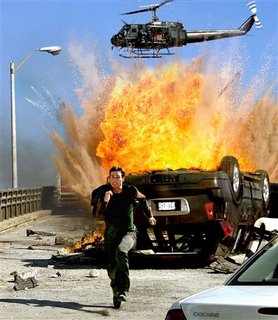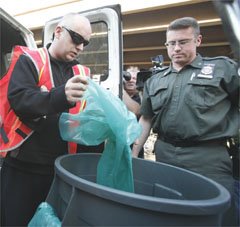 In August Tom Cruise and Paramount, so long a partnership that seemed to have been made in heaven, announced that they were to part company.
In August Tom Cruise and Paramount, so long a partnership that seemed to have been made in heaven, announced that they were to part company. A bitter and public divorce is now likely as Viacom Inc's Chairman Sumner Redstone belittled Tom Cruise by publicly evicting Cruise's production company from his company's Paramount Pictures studio.
In a war of words, Cruise's team have claimed that it was they that left while Paramount executives have given 'unreasonable behaviour', 'excessive demands' and unfordable salaries as the reasons for 'their' decision.
In recent months Tom has been seen bouncing on Oprah Winfrey's sofa to declare his love for a girlfriend who then it is rumoured gave birth in Scientology-demanded silence, where gossip would have it that he went on to eat the baby's placenta. Are these the actions of a 'weirdo', untrue gossip or just Tom Cruise being Tom Cruise?
Will the Tom Cruise cash cow be snapped up by a rival company, will he fade away or will he threaten the major players by finding funding for new films through new channels?
Were Paramount right to take a stand or will Tom Cruise go on to serve them humble pie?
Participate in this weeks free survey Tom Cruise True Superstar or Mission Impossible?



